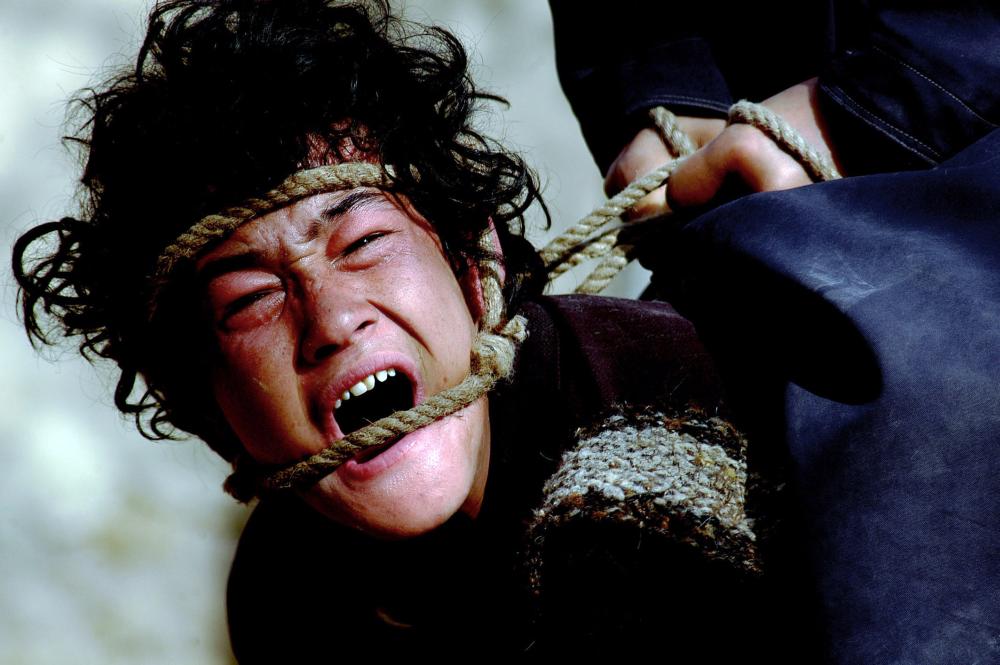
Between cynicism and child exploitation: the “Makhmalbaf Iranian New Wave”
would Samira be happy to see her son (disabled or not) humiliated, beaten and oppressed on the biggest screens of the world?
Reading time: (Number of words: )
Let’s close your eyes for a moment and imagine being a father or a mother with a disabled child. Since his birth, as most of parents, you love your child. You suffer with him. You rejoice with him despite every problem.
In a beautiful day, a famous director knocks on your door and says he would like to shoot a movie with your son like leading actor. After a slight hesitation you ask for explanations. You want to know why he has chosen him and about what the plot is about.
Well – says the director – the plot is very simple, but full of philosophical implications and ponderings about human nature: your son will be turned into a human horse, he will ride, will be beaten up and scorned to show to the world how low human instincts can be and how cruel our fellows can be! This is art!
What you imagined for a moment is real. It happened in Afghanistan in 2008. The movie with the title “Two Legged Horse” has been screened in many international film festivals and has won many awards. The director is Samira Makhmalbaf, daughter of Mohsen Makhmalbaf who wrote the screenplay.
Here you can watch the trailer:
Makhmalbaf has recently presented his last movie on the 71st Venice International Film Festival. He has also created the Makhmalbaf Film House a film production company that produces also the movies of his daughters, Samira and Hana, and of his wife Marzieh Meshkini.
The plot is essentially this: a young boy hires a poor and disabled child to carry him around like a horse. The young boy’s whims include not only verbal and physical abuse, but also repeated "horse fights" where "the horse" will continually be knocked down. Even "the horse’s" tender feelings for a child girl beggar are exploited and mocked. Because of the brutal and degrading treatment "the horse" will become more and more similar to a real horse.
In this movie the boy is hired for a dollar a day, probably the same amount of money paid by the director to the boy’s family. But then Makhmalbaf’s family is not new to the children-animals similitudes.
In 2004 Marzieh Meshkini (Makhmalbaf’s wife) shoots “stray dogs”. Here the dogs are two orphaned children in Kabul. Calling dogs two children is grotesque in itself, but in the Islamic culture, both in Iran and Afghanistan, this is a real insult.
Samira Makhmalbaf said that she shot it in Afghanistan because she could not get permission to shoot in her native Iran because of the problems the regime has with her father.
The question is: could ever Samira shoot a movie like that in Europe or in the United States?
In these countries everybody would cry scandal and would accuse the director of child exploitation.
Why this is allowed in Afghanistan?
Isn’t a hypocrite double standard here?
At the end of this movie devoid of meaning but full of cynicism and veiled racism a question raises:
would Samira be happy to see her son (disabled or not) humiliated, beaten and oppressed on the biggest screens of the world?

Poems for the Hazara
The Anthology of 125 Internationally Recognized Poets From 68 Countries Dedicated to the Hazara
Order Now












